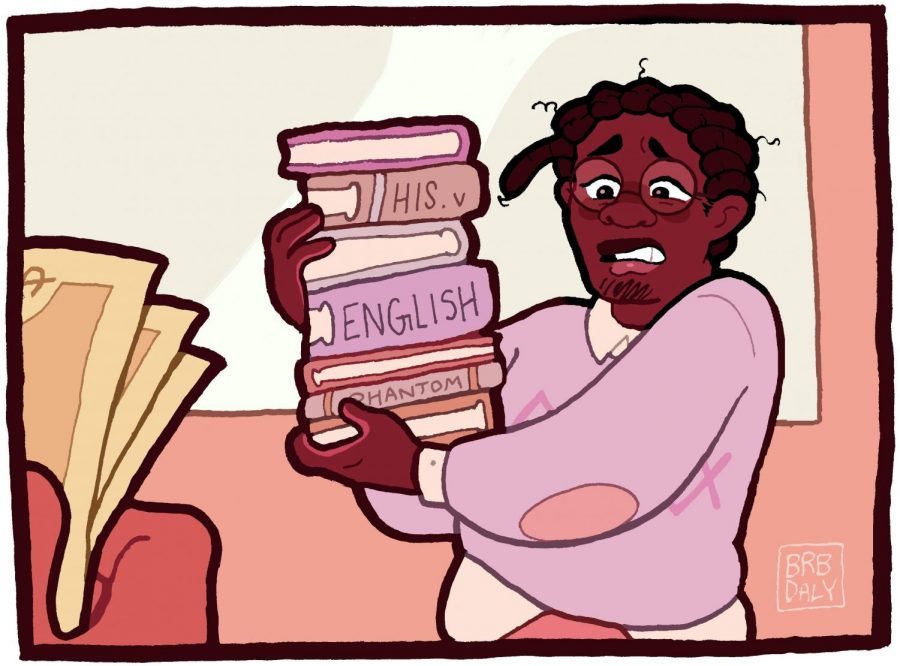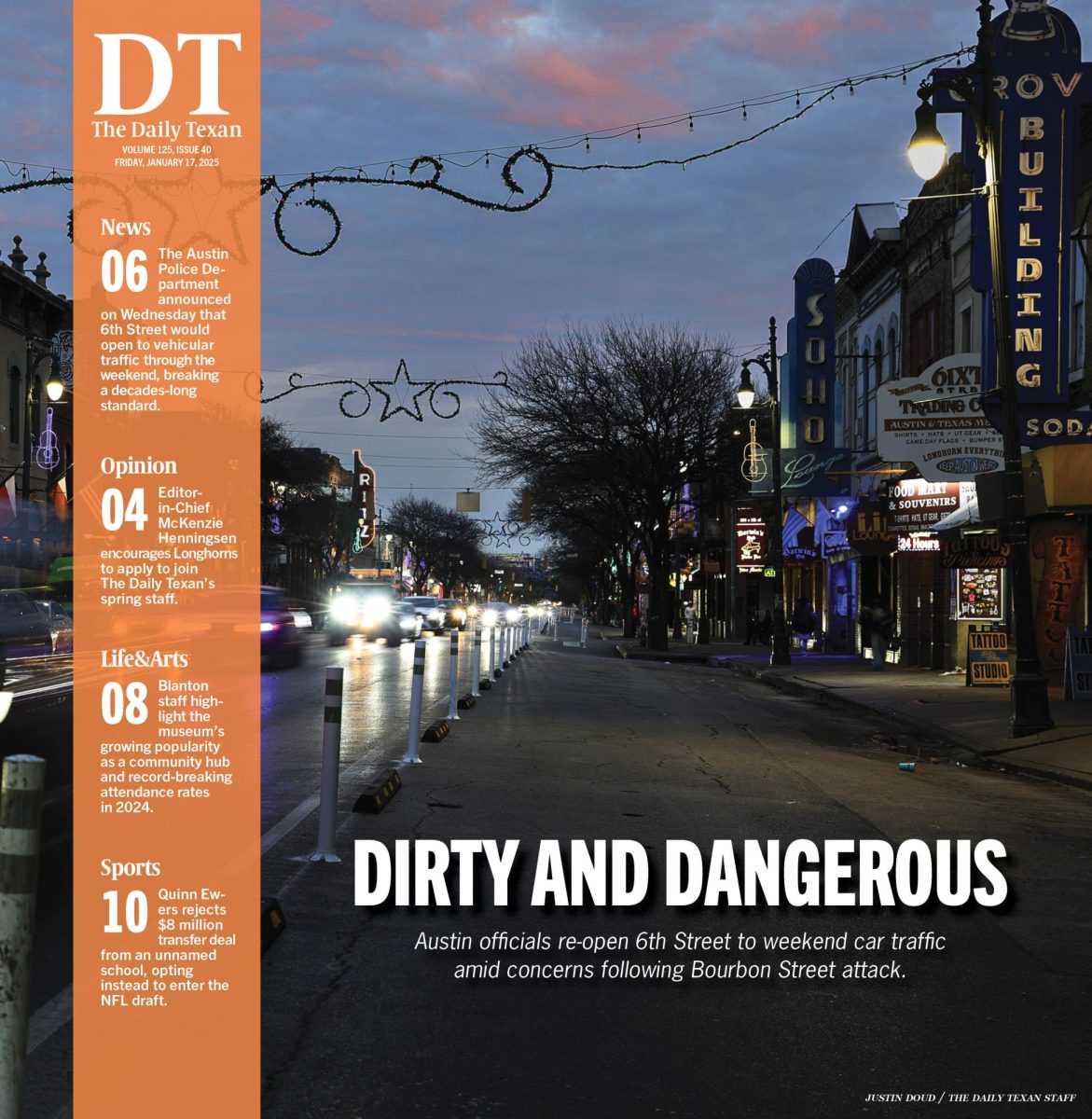Textbook resale allows students to make money, find community
April 27, 2021
Editor’s Note: This article first appeared in the April 23 issue of The Daily Texan.
Standing behind the book buy-back counter at the University Co-op, the Co-op’s director watched a student’s eyes widen in disbelief as she received $220 in cash for her used textbooks.
“She hit the jackpot,” said Michael Kiely, the University Co-op director of course materials. “You could just tell … (the money) took care of whatever problems she had in that moment. It was a really cool feeling for us to be able to make somebody happy like that.”
On top of tuition and housing payments, buying course materials each semester can be a financial burden for some students. According to the College Board, the yearly estimated cost of textbooks for the average full-time student at a four-year public university is about $1,298. Whether through the Co-op or among peers, selling old textbooks gives students a chance to make some money and contribute to the campus community.
“You’re paying it forward,” Kiely said. “Student A, who is selling that book at the end of the semester is getting money for it, but they’re also providing a cheaper copy for Student B, who is going to take that course the next semester.”
Sports management junior Jamie Averch said she sold a government textbook to her underclassman friend. The textbook was originally $80, and she charged her friend $20.
“There’s no downside to (selling books),” Averch said. “I personally wish someone did that for me, because it gives you a lot of good insight. If I were smart like (my friend) and reached out as an underclassman, I think that would have been a very good move.”
For Parker Chambers, geography and sustainability senior, selling old textbooks is a way to assist students financially. During his freshman and sophomore years, Chambers said he used GroupMe to sell four books he had bought for core curriculum classes.
“I don’t put a price tag on (the books). I just say to pay whatever you can,” Parker said. “I trust people to be honest. Just being transparent (about) your (financial) position as a student is the only way to really help each other.”
Kiely said the buy-back option at the Co-op used to be common knowledge among students, but in recent years, he’s noticed many students don’t know it exists.
“When I went to school, it was just kind of in my DNA,” Kiely said. “(Book buy-backs) were an event. I don’t know what changed … I think a lot of it is that there isn’t as much physical (material) anymore.”
Averch said she wasn’t aware of the Co-op’s buy-back process, and she hopes the Co-op starts advertising the program more.
“I think I might actually go see what (the Co-op’s book buy-back) process is like,” Averch said. “I do have tons of textbooks that I’m never going to use.”
As the spring semester comes to a close and fall registration begins, Chambers said exchanging textbooks with other students will continue to strengthen the campus network.
“It’s an opportunity for people to meet each other and get whatever resources we need to be successful,” Chambers said. “Obviously not every interaction is going to end up (leading to) your best friend, but it definitely could.”











